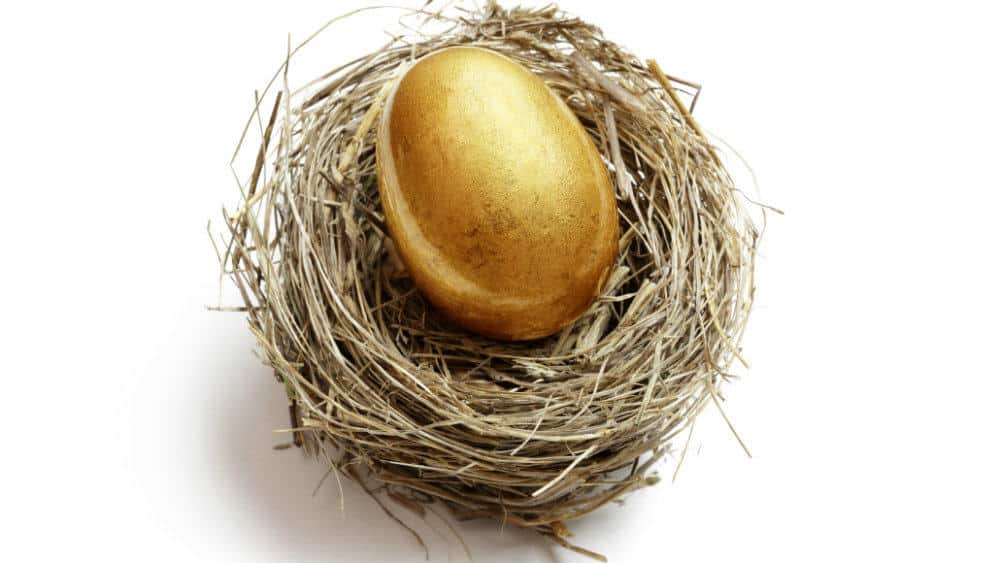Do you want to retire a millionaire with zero effort?
If so, you must know this one thing: it’s not really possible.
Making money always requires effort. Any time you hear about somebody coming into a multi-million-dollar fortune without trying (e.g., through the lottery or an inheritance), you’ll find that they were beneficiaries of an enormous dose of luck.
Having said that, there is a way to retire a millionaire with relatively little effort. By investing in stocks and other appreciating assets on a regular basis, you can grow your money over time without actually having to work more hours. Researching in individual stocks is a form of “work,” but if you invest in ETFs instead of stocks, you cut out the need for in-depth knowledge of companies. With that in mind, here is how you can retire a millionaire with as little effort as is reasonably possible.
You need to invest
The first thing you need to know about retiring wealthy is that you need to invest. Cash savings are guaranteed to lose real value over time. In 2021, inflation is running at about 4%, so cash holdings are losing significant value this year. Of course, you can increase the value of your savings by simply saving more. If you have $10,000 in total savings and add $4,000, then you’ve increased the value of your savings by 40% — well ahead of the 4% rate of inflation. But this gets harder and harder to do the larger your savings grow. For example, if you have $1,000,000 in the bank, you need to add $40,000 to it just to keep up inflation.
That’s not something most people can do. So, if you have substantial savings, you really need to invest it to make it grow. To that end, there are countless assets you can invest your money in to grow your net worth:
- Stocks
- ETFs
- Fixed incomes
- Precious metals
- Real estate
- Cryptocurrency
- And more
In truth, the universe of investible assets is practically unlimited. If it has a shot at rising in value over time, you might make a good investment in it. With that being said, there is one specific investment that is ideally suited to retirees above all others, as you’ll see in the next section.
One retirement-worthy investment
For retirees, there is one type of investment that stands out above all others: index ETFs.
Index ETFs, whether built on stocks or bonds, are ideal for retirees because
- Their built-in diversification reduces unsystematic risk (a component of total risk);
- Their low fees keep fund managers from chipping away at your principal; and
- Their lack of heavy exposure to individual stocks means you don’t need detailed knowledge on any one company.
Consider iShares S&P/TSX 60 Index Fund (TSX:XIU) for example. This is a Canadian ETF built on the TSX 60 — the largest 60 TSX stocks by market cap. With those 60 stocks, you get ample diversification. With a 0.16% fee, you don’t lose a noticeable amount of money to the fund managers. And with high liquidity, you can trade the fund any time the markets are open. Put simply, XIU is a perfect index fund for Canadian retirees.










